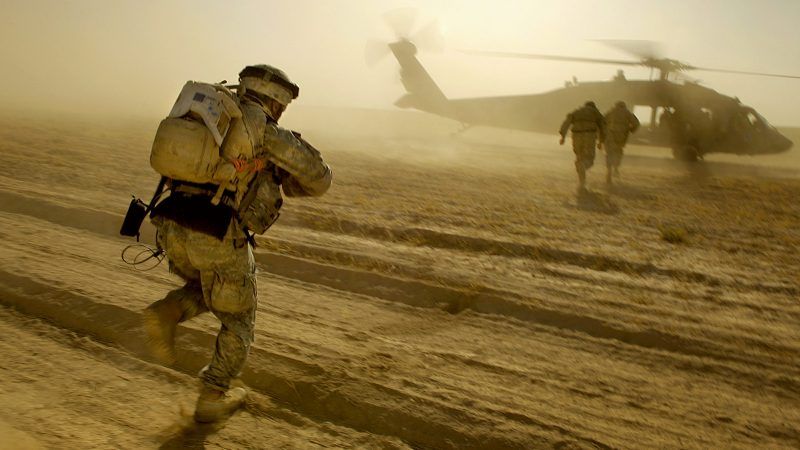Military-Intellectual Complex Looks Forward to More War in 2020
The Council on Foreign Relations survey of foreign policy experts finds "more threats...likely to require a U.S. military response in 2020 than ever before."

The foreign policy experts have seen the shadow of American empire, and so more war is on the way. Welcome to Groundhog Day: Endless War Edition.
In an annual survey conducted by the Council on Foreign Relations (CFR), foreign policy experts are asked to rank 30 potential conflicts that could could require American military action in the new year. This year, the brave men and women of the foreign policy establishment say only two of those 30 conflicts have a "low likelihood" of occurring.
"Perhaps as an indication of rising concern about the state of the world, respondents rated more threats as likely to require a U.S. military response for 2020 than in any other Preventive Priorities Survey (PPS) from the last eleven years," explained Paul B. Stares, director of the CFR's Center for Preventative Action.
Indeed, protesters stormed the U.S. embassy in Baghdad during the final hours of 2019, protesting American airstrikes against an Iranian-backed militia group operating in what's left of Iraq. In response, President Donald Trump deployed 750 additional American troops to Baghdad and is reportedly considering sending another 4,000 troops to the Middle East.
All of this could be a prelude to war with Iran. Both Trump and his former national security advisor, John Bolton, have pinned all of the blame for this week's Baghdad protests on Iran, though there are plenty of reasons for Iraqis to be angry with America's continued presence in their country.
The potential for conflict with Iran stands out in the CFR survey as well. "Only one conflict was ranked as having a high impact on the United States: an armed confrontation between Iran and the United States or one of its allies," the think tank reports.
Alongside the potential war with Iran, the group lists 12 other conflicts that are "identified as top priorities for the United States next year." Calling them "top priorities" kind of gives away the game, no?
Those other "top priorities" include a major terrorist attack on the United States or a close ally, a crisis on the Korean peninsula, a maritime conflict with China in the South China Sea, and increased Russian aggression into Ukraine.
Also on the list: "Increasing political instability in Iraq exacerbated by underlying sectarian tensions and worsening economic conditions." Keep in mind, this is from a survey published by the "Center for Preventative Action." If only there was something the U.S. could have done to prevent Iraq's collapse into turmoil, the special forces of American foreign policy-making tell us.
Recall, too, that the CFR's Middle East director in 2002 backed what she said was a "strategically sound" plan to invade Iraq in the first place.
Still, 2020 does look like it could be a particularly fraught year for America's foreign policy. Iraq is still a mess. The most realistic outcome in Afghanistan is that Washington will eventually turn the country over to the Taliban—the group we've spent 19 years fighting. And despite two decades of failed interventions, there will always be esteemed people calling for America to shed more blood and treasure over conflicts that have little to do with keeping Americans safe. The CFR survey certainly makes that clear.
The wild card in all this is Donald Trump. Though he has so far avoided outright war with Iran, the president has also failed to follow through on his ruminations about ending America's long-term engagements in the Middle East and bringing the troops home. As he gears up to run for re-election, it's not difficult to imagine the foreign policy establishment whispering in his ear that foreign wars can be good for his domestic political prospects.
Believing them would be a mistake. Trump got elected in 2016 in part by running against America's bipartisan foreign policy consensus—voters picked him over both a Bush and a Clinton, after all. And if his re-election campaign is going to tout "Promises Kept," he probably can't afford to launch a new war.
For that matter, the country can't afford it either. We're $23 trillion in debt.
But money spent and lives lost don't seem to matter to foreign policy experts in Washington. When you're paid to hawk hammers, everything is a potential nail.


Show Comments (94)